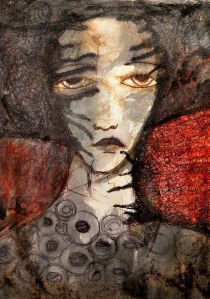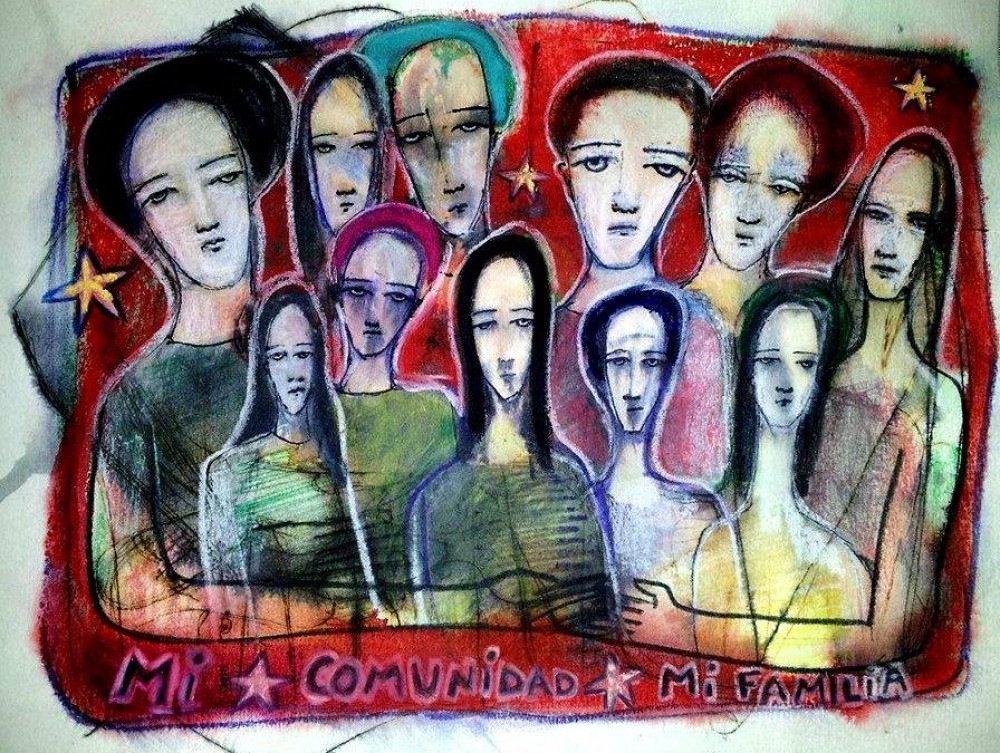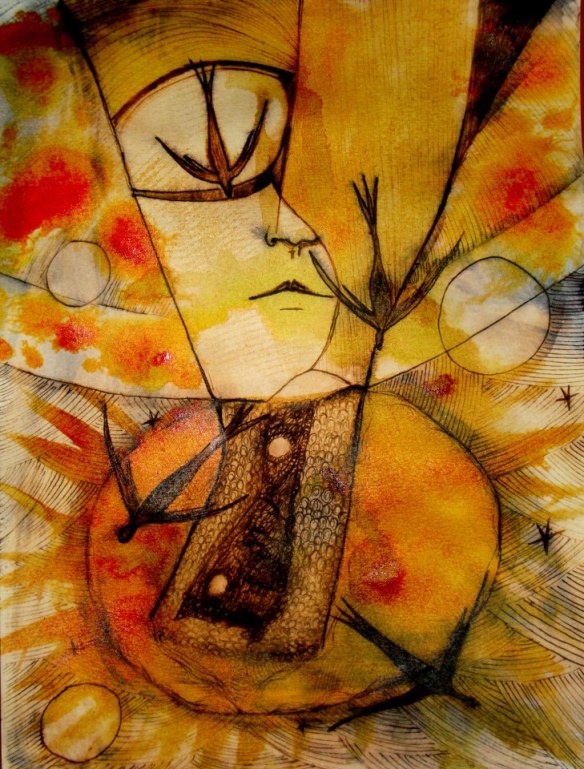Ella nunca se ha hecho ver en nuestra clínica, pero ha llamado esta mañana queriendo una cita “de emergencia” para su prueba de Papanicolaou y físico. María tiene 32 años y trabaja haciendo limpieza en un hotel – dice su formulario de admisión. Mientras la escucho aprendo que es inmigrante de Guatemala, que sus tres hijas aún viven en su pueblo de origen, y que se mudó a Estados Unidos hace 4 años para unirse a su esposo, a quien no había visto en 8 años. Ella no tuvo diabetes gestacional; sus padres están vivos y bien… Las menstruaciones son regulares, su método de control de la natalidad es “mi marido se cuida”. Le pregunto si hay algo más que yo debería saber acerca de su historia clínica, o si tiene alguna preocupación que la trae a la consulta. María dice que “no”, pero yo veo el “eso”. El “eso” es como una pequeña nube que pasa rápida velando sus ojos, una expresión fugaz. Una expresión de dolor y tristeza que viene y va tan rápido que podría haberla pasado por alto si no hubiese estado mirándola a los ojos.
 “¿Qué más?” le pregunto en voz baja. “María, ¿hay algo más?”… Y sus ojos se llenan con lágrimas y la expresión de su semblante revela una angustia tan profunda, me doy cuenta de que no hay fondo para este dolor… Y así, me siento ahora más cerca de ella, y mientras llora, María comparte su historia…
“¿Qué más?” le pregunto en voz baja. “María, ¿hay algo más?”… Y sus ojos se llenan con lágrimas y la expresión de su semblante revela una angustia tan profunda, me doy cuenta de que no hay fondo para este dolor… Y así, me siento ahora más cerca de ella, y mientras llora, María comparte su historia…
“Hacía mucho tiempo, doctora… Yo quería ver a mi marido… Las niñas eran ya mayorcitas, mi madre podía cuidar de ellas, y yo pensaba que si me unía a él y trabajaba, ambos podríamos poner a las niñas en una mejor escuela, construir una casa en nuestro pueblo, mandarlas a la Universidad”dice esbozando una sonrisa. “Ya era hora de que me uniera a él en los Estados Unidos… Lo echaba de menos… Mi marido pagó por mi viaje… Pero los hombres, doctora… Ellos nos cruzaron desde Guatemala por México hasta los Estados Unidos… Éramos diecisiete hombres y mujeres inmigrantes y los cinco hombres que nos cruzaron. Dos de nosotras éramos mujeres que viajaban solas. Una noche, ellos trataron de tener sexo con nosotras. Nos negamos. Nos llevaron a un lugar alejado del resto y nos ataron, nos pusieron en el suelo y nos dijeron que si no teníamos relaciones sexuales con ellos, iban a matar a todo el grupo… La otra muchacha se negó primero. Ellos nos golpearon a las dos e insistieron en que nos iban a matar a todos… Yo pensé en las otras personas y en sus familias a la espera de ellos… Y me tuve que dejar, doctora. Y esos cochinos nos hicieron el sexo todas las noches… Los cinco hombres me lo hicieron a mí y a la otra muchacha… Los cinco… cada noche, mientras los demás dormían… Yo no podía dejar de llorar, y me golpeaban diciéndome que no llore y me calle… Doctora, fue tan doloroso que tenía moretones por todas partes… Creo que los demás nos oyeron, pero todos estaban tan asustados que nadie hizo nada… No le he contado esta historia a nadie. No puedo dormir. No puedo dejar de pensar en ellos. Yo estaba tan feliz de ver a mi marido, no veía la hora, pero lo que me pasa es que cuando él se acerca a mí, y le huelo su sudor de hombre y le toco su piel no puedo dejar de pensar en todos aquellos hombres. Y desde que cruce la frontera cada vez que mi esposo se acerca a mí yo lloro, y siento náuseas, y a veces vomito… Doctora, por favor, ayúdeme… Lo amo, pero no puedo acercarme a él. Doctora necesito su ayuda… “
Mi personal de recepción se pregunta por qué estas mujeres y jóvenes “de repente” quieren un examen físico… Conozco a esta historia demasiado bien… Yo llamo a esta cita “el Papanicolaou de emergencia”, y les pido a mis recepcionistas que me avisen, es un código que me ayuda a estar preparada. Algo que sucedió anoche o esta mañana en la vida de esta mujer, una fuerza repentina que antes no estaba allí la ha impulsado hoy a venir a la oficina para un “examen físico” que había sido pospuesto por muchos años. Es como una señal interna que le permitirá compartir y hablar con un médico acerca de “eso” si existe un ambiente de seguridad durante su visita clínica. Y esa pregunta adicional: “¿Hay algo más que quieras decirme?” dicha junto a una mirada de aceptación y comprensión se convierten en el momento seguro que estas mujeres necesitaban para poder compartir una experiencia horrible que ha marcado sus vidas.
Estoy aquí para escuchar. Mi papel es el de testigo, ayudante, consejera, persona de apoyo, cuidadora de la salud, médica de familia. Esponja de las historias de dolor, y en casos como el de María: los horrores de la inmigración…


